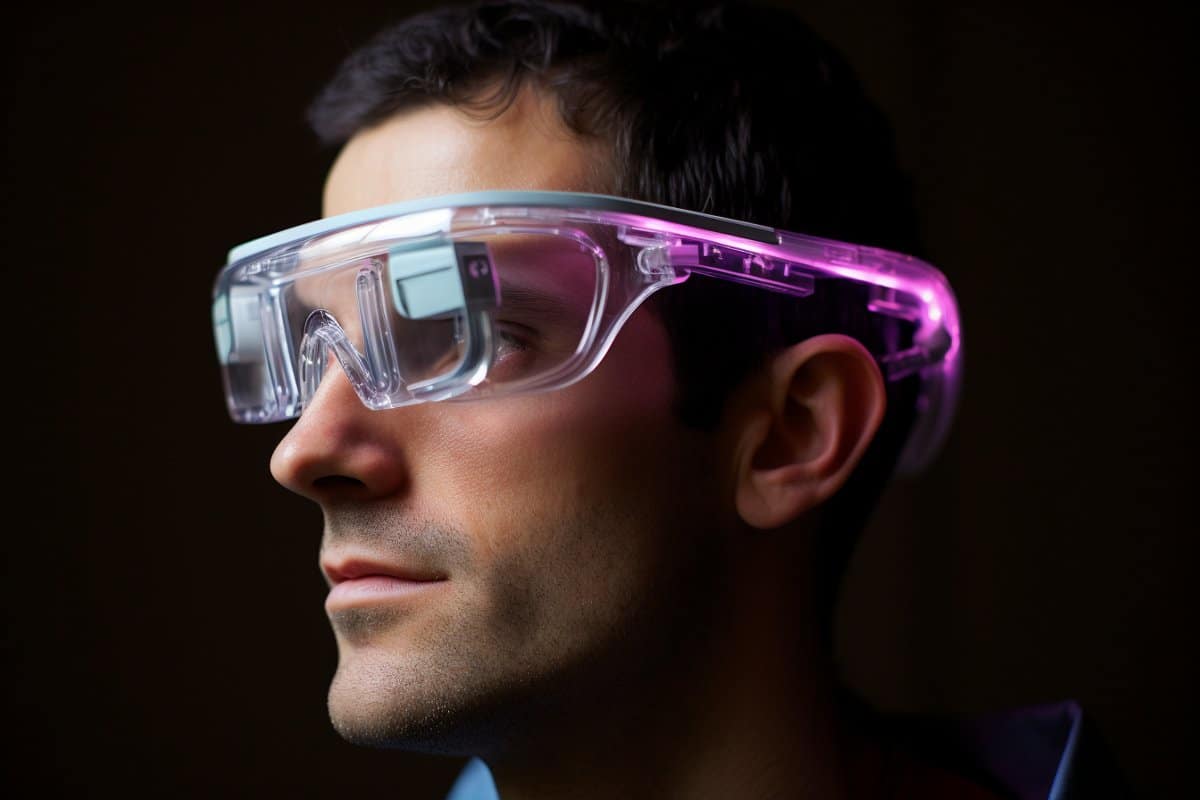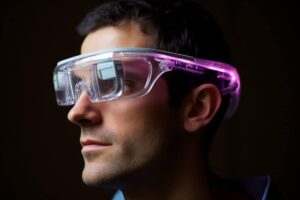In recent years, Europe has seen a significant surge in the development and adoption of AI-powered glasses, marking a new frontier in wearable technology. These innovative devices are not just enhancing visual experiences but are also revolutionizing how people interact with their environment, particularly in assisting those with cognitive impairments such as dementia.
The Rise of AI Glasses in Europe
The European market for AI-powered glasses has been expanding rapidly, driven by advancements in artificial intelligence, augmented reality (AR), and miniaturization of electronics. Companies across the continent, from startups to established tech giants, are investing heavily in this technology, recognizing its potential to transform various sectors including healthcare, education, and industry.
One notable example is the AI-powered glasses developed by CrossSense and Animorph in the UK. These glasses, designed to aid people with dementia, represent a significant leap forward in assistive technology. They use AI to help users recognize objects and people, improving memory recall and enabling greater independence in daily activities.
Features and Capabilities
Modern AI glasses come equipped with an array of sophisticated features:
- Object and Person Recognition: Using computer vision algorithms, these glasses can identify objects and faces in the wearer’s field of view.
- Contextual Information: AI processes the visual data to provide relevant information about the recognized objects or people.
- Voice Interaction: Many models incorporate voice recognition and natural language processing, allowing users to interact with the device hands-free.
- Memory Assistance: For users with cognitive impairments, the glasses can store and recall important information, acting as an external memory aid.
- Navigation Support: Some models offer AR-based navigation, helping users find their way in unfamiliar environments.
Applications Across Industries
While healthcare applications, particularly in dementia care, have garnered significant attention, AI glasses are finding uses across various sectors in Europe:
- Manufacturing: Workers use these glasses for hands-free access to manuals, schematics, and real-time guidance.
- Education: Students and educators leverage AR capabilities for immersive learning experiences.
- Tourism: Travelers benefit from real-time translation and information about landmarks and attractions.
- Retail: Shops are experimenting with AI glasses for inventory management and enhanced customer service.
Funding Landscape
The development of AI glasses for dementia care has attracted substantial funding from various sources:
- Government Initiatives: Many European countries have launched funding programs specifically targeting innovative solutions for dementia care. For instance, the UK’s National Institute for Health and Care Research (NIHR) has allocated significant resources to projects involving AI and dementia.
- Longitude Prize on Dementia: This £1 million prize, funded by Innovate UK and the Alzheimer’s Society, aims to develop AI-powered technologies to help people with dementia live independently for longer. The competition has spurred development in AI glasses technology, with several finalists focusing on this area.
- European Union Grants: The EU’s Horizon Europe program has dedicated funding streams for health innovation, including projects addressing neurodegenerative diseases like dementia.
Private Investment: Venture capital firms and tech companies across Europe are increasingly investing in startups developing AI solutions for healthcare, including those focused on dementia care. - Charitable Organizations: Alzheimer’s research charities across Europe are funding innovative projects, including AI glasses, as part of their mission to improve the lives of those affected by dementia.
As Europe continues to be at the forefront of AI and wearable technology innovation, AI-powered glasses are poised to play an increasingly significant role in shaping the continent’s technological landscape. From enhancing quality of life for those with cognitive impairments to transforming industries, these devices represent a convergence of AI and human experience that could define the next era of human-computer interaction.


